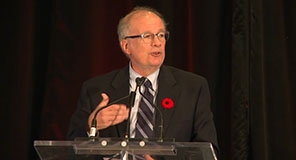
My latest MoneySense Retired Money column looks at the topic of whether average savers transitioning to Retirement really need to fear outliving their money. The piece picks up from a blog this summer from Michael James on Money, which will be republished in its entirety tomorrow here on the Hub.
You can access the full MoneySense column by clicking on the highlighted text: How long will your retirement nest egg last? In addition to citing Michael J. Wiener’s work, the piece passes on the views of two prominent recently retired actuaries: Malcolm Hamilton and Fred Vettese, as well as my co-author on Victory Lap Retirement, ex corporate banker Mike Drak.
Like this blog, despite being online the column’s scope is somewhat constrained by a word limit. In fact, in an email, Hamilton told me he didn’t think such a topic could be addressed in just 800 or 900 words.

“Why? We presume that good advice is universal … that it applies to everyone. It does not, particularly when addressing concerns about running out of money. For years I have looked for evidence that large numbers of seniors spent too much and suffered as a consequence. I haven’t found anything persuasive.”
As I say in a personal note at the end of the MoneySense column, I’d rather die with a bit of money to give to our heirs than die broke owning money to the proverbial undertaker but we’re all different. Keep in mind that early in retirement – the so-call “Go go” years — you’ll travel more and indulge in expensive hobbies. If your 80s involves ramping down to the “Go slow” years, odds are you’ll be less inclined to spend a lot by then.
Finally, if, the Lord willing, you make it to the “no go” years of the 90s, then yes the last few years of retirement, and your life, could be medically quite expensive. That would be a bigger issue in the US, where some of the EBRI figures cited in the column apply, since Canada has a more generous universal health system.

